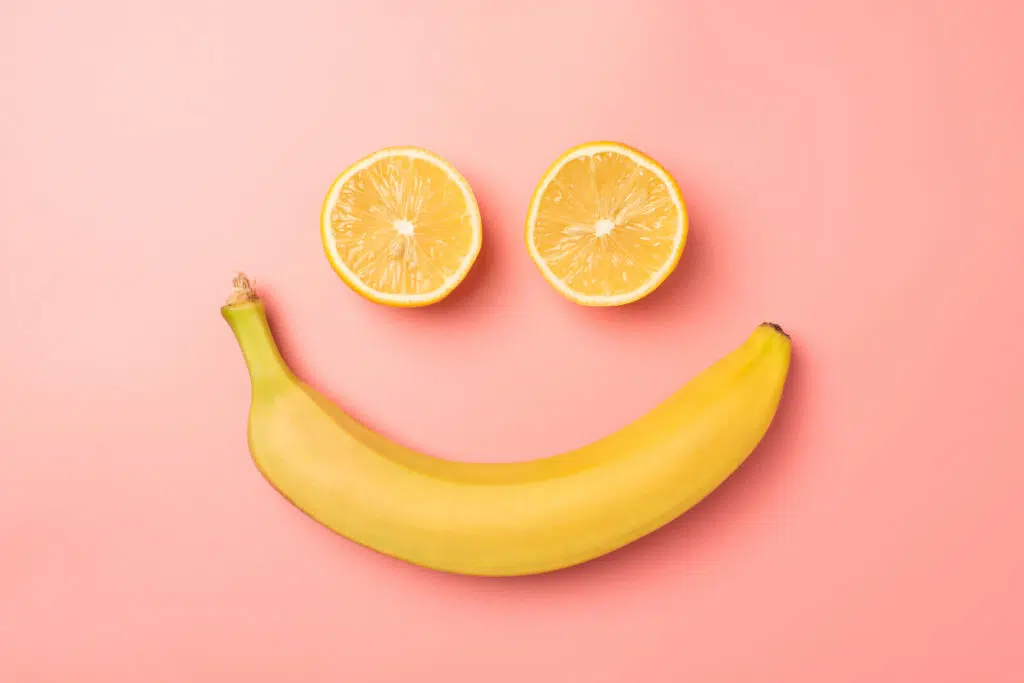Trying to conceive? The road to parenthood can be rocky – 1 in 7 couples have difficulties conceiving1https://www.nhs.uk/conditions/infertility/ – this is approximately 3.5 million people in the UK alone!2https://www.completefertility.co.uk/about-fertility/causes-of-infertility
There are factors like age, genetics and medical conditions that may affect fertility but are tough to control. Here at Chuckling Goat, we like to focus on factors you can control.
We all know that what you eat has a crucial effect on your gut health and mental wellbeing, but it’s also vital in maintaining bodily functions, including reproduction. Research has linked improved nutrition and a healthy diet to better fertility outcomes, including improving egg, sperm and embryo quality as well as higher rates of implantation.3https://www.ncbi.nlm.nih.gov/pmc/articles/PMC5826784/4https://www.ncbi.nlm.nih.gov/pmc/articles/PMC6568019/
So let’s look at foods that can naturally boost your fertility:
1. Antioxidant-Rich Foods
Antioxidants, such as zinc and folate, may improve fertility for both men and women by protecting sperm and egg cells from harmful free radicals.5https://www.healthline.com/nutrition/16-fertility-tips-to-get-pregnant#1.-Eat-foods-rich-in-antioxidants In fact, a study conducted in 2014 showed that a higher folate intake was associated with higher rates of implantation, clinical pregnancy, and live birth. 6https://www.ncbi.nlm.nih.gov/pmc/articles/PMC4172634/ Further research has also found improved sperm quality in adult men that consumed 75g of antioxidant-rich walnuts per day.7https://academic.oup.com/biolreprod/article/87/4/101,%201-8/2514205
We recommend:
Walnuts
Avocadoes
Blackberries
Raspberries
Sunflower seeds
Chia seeds
Brazil Nuts
Shiitake Mushrooms
Spinach
Lentil sprouts
Asparagus
Eggs
2. Slow/Complex Carbs
Refined carbs, including sugary foods, white bread, rice and pasta, have a high glycemic index (GI) and are absorbed quickly, causing spikes and crashes in your blood sugar levels.8https://www.healthline.com/nutrition/why-refined-carbs-are-bad#TOC_TITLE_HDR_2 However, not all carbs are bad! Complex carbs pack in more nutrients than simple carbs.9https://www.healthline.com/health/food-nutrition/simple-carbohydrates-complex-carbohydrates They’re higher in fibre, digest more slowly and have a more gradual effect on blood sugar and insulin.10https://www.parents.com/getting-pregnant/fertility/what-to-eat-to-get-pregnant/ Replacing refined carbs, that provide instant sugar, with slow carbs has a positive effect on fertility as insulin is found to inhibit ovulation.11https://www.ncbi.nlm.nih.gov/pmc/articles/PMC5904600/
We recommend:
Buckwheat
Oatmeal
Quinoa
Amaranth
Millet
Ezekiel Bread
Chilled starchy foods – rice, pasta, potatoes
Lentils
Kidney Beans
Black Beans
Chickpeas
3. Healthy Fats
Your body needs fat! Every organ and cell requires fats in order to function optimally. From a fertility perspective, a variety of fatty acids are needed to manufacture the cell membranes and hormones which become the building blocks of a healthy brain and nervous system.
Studies have shown that full-fat dairy is very supportive for fertility as opposed to low-fat dairy foods, with low-fat dairy options increasing the risk of anovulatory infertility.12https://pubmed.ncbi.nlm.nih.gov/17329264/ Research suggests that women who consumed one or more high-fat dairy foods a day reduced their risk of anovulatory infertility by 27% compared to those who ate less than one serving a week.13https://www.sciencedaily.com/releases/2007/02/070228064902.htm
A further 2012 study found that food high in monounsaturated fats (the ‘good’ kind) may significantly raise IVF success rates for those who consume a lot of it. But for those who ate more saturated fat (the ‘bad’ kind), fertility treatment was less successful.14https://www.researchgate.net/publication/303502262
We recommend:
Avocadoes
Olive Oil
Flaxseed Oil
Almonds
Olives
Coconut Oil
Full Fat A2 Milk
Full Fat Cultured Dairy (Kefir)
Nut and Seed Butters
You can read more about healthy fats and why they’re good for you here.
4. Probiotics
A scientific literature review found that probiotic use for fertility is beneficial in a number of ways: suppresses pathogens, boosts the immune system, increases the likelihood of conception, reduces the risk of infection, and lowers the risk of pregnancy complications.15https://pubmed.ncbi.nlm.nih.gov/23414386/ Chuckling Goat Probiotic Kefir is pure and unflavoured, contains zero chemicals and is the perfect ally for your journey throughout parenthood – from conception to birth and beyond.
5. Fish
The Environmental Protection Agency (EPA) and the Food and Drug Administration (FDA) jointly recommend that pregnant women, or those who are looking to conceive, eat 8 – 12 ounces of low-mercury fish per week. Low mercury fish contains lots of healthy protein and DHA, which is important for babies’ brain and eye development.16https://www.epa.gov/fish-tech/epa-fda-advice-about-eating-fish-and-shellfish
One study found that couples who ate more fish were more likely to conceive and had more frequent sexual intercourse than those who ate less.17https://www.hsph.harvard.edu/news/hsph-in-the-news/trying-to-get-pregnant-eat-some-fish/ Researchers found that 92% of participants who ate four-ounce servings of fish twice a week or more, were pregnant after a year, compared with 79% of the couples who ate less.
We recommend:
Sardines (no more than 2 portions a week)
Wild Caught Salmon (no more than 2 portions a week)
Cod
Hake
Haddock
Herring (no more than 2 portions a week)
Plaice
NOTE: some fish are best to avoid if you’re trying to get pregnant since they have high levels of mercury.
While there is no specific food or ‘diet’ that will guarantee conception; diverse, well-balanced food choices can help support your overall health, including reproductive health. As always, don’t forget our 80/20 rule – eat as healthily as possibly 80% of the time, and enjoy a treat or two the remaining 20% of the time – because life’s too short not to eat chocolate 😉
Read more about how kefir can help support you and your baby here: https://www.chucklinggoat.co.uk/5-ways-kefir-can-support-you-and-your-baby/
Questions? Speak to our team of Nutritional Therapists on live chat, 8am – 8pm on weekdays.
References
- 1
- 2
- 3
- 4
- 5
- 6
- 7
- 8
- 9
- 10
- 11
- 12
- 13
- 14
- 15
- 16
- 17














